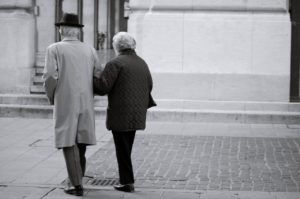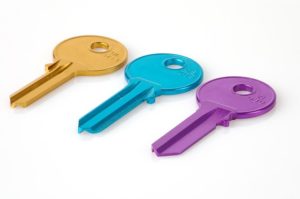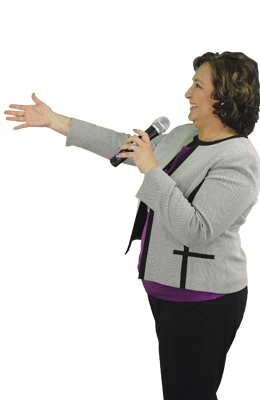
Various disasters not limited to tornadoes, wildfires, flooding, earthquakes, hurricanes, or snowstorms happen annually. Since each of these emergencies impact every age and stage of life. It is prudent to have a personal emergency preparedness. Who cares for your boomer? Are you a caregiver? Is your loved in an assisted living facility?
More than the estimated 47.8 million people age 65 and older resided in the United States as of 2015. That accounted for 14.9 percent of the total population. That year alone the same population demographic represented growth of 1.6 million from 2014. With many seniors aging in place and in the care of family members or in-home providers, the need to consider emergency operation plans is a tremendous oversight all too often. First-hand response and media coverage of disasters that brought to the public eye how vulnerable our senior population is an excellent reminder to have a plan.
As one involved in disaster recovery and a caregiver, I have learned the importance of preparedness for all stages of life. If you have never cared for children, the disadvantage is the limited perspective of what necessities are part of leaving home for any period of time. The advantage is the perspective of caring for the most vulnerable. Our elders have similar needs. So plan ahead.
CONSIDERATIONS
- Who is responsible to evacuate your loved one?
- Do you know the procedure?

3 Keys Preparedness
1. Plan
2. Prepare
3. Perform
PLAN
Ask yourself and other caregivers questions. Be sure you and the primary caregiver are written into the plan. Elders can become anxious in times of sudden activity.
PREPARE
Have a clearly strategized and communicated plan and practice it. How you practice will drill information into the brain for a later response. What is not practiced may go unused when needed most.
PERFORM
Check readiness bags and update info anytime meds or documentation changes. Check the expiration date of meds, supplements, and batteries.
Is there the option of a family member going to stay with grandma or grandpa for calming sake?
Reunification point – where will the family reunite if evacuated?
Who will be the communication point of contact for the family in case signal is lost?
Have a “go bag” that can be grabbed quickly with the following
recommended Elder Care Emergency considerations. Things can be lost or left behind in an emergency.
PLANNING CHECKLIST
- Medication – keep a current list handy.
- Documentation – Copies of family records and other relevant documents such as birth and marriage certificates, Social Security cards, passports, wills, deeds, and financial, home and medical insurance and immunizations records, medical insurance, Medicaid/Medicare cards, and immunizations records – all stashed in a sealed, waterproof bag. These can be kept on a portable flash drive for simplicity.
- Medical Supplier or repair contact.
- Military DD214
PREPARATION SURVIVAL CHECKLIST
- One gallon of water per day. Electrolyte beverages are a good source of hydration.
- Nourishment – ready to eat non-perishable food rich in B12 vitamin and low in sodium. Vitamin supplements can help prevent nutritional deficiencies.
- Blankets, extra clothing, and comfortable shoes.
- Spare eyeglasses, hearing aids, catheters, batteries, oxygen systems, etc.
- First-aid kit, medical insurance, and Medicaid/Medicare cards.
- Medical-alert tags or bracelets with information about healthcare needs.
- An emergency-contact list to reach family and friends.
- Plenty of extra cash, since access to banks and ATMs may be limited.
- A battery-powered radio and/or a NOAA weather radio.
- A solar or battery-operated flashlight.
- A whistle to call for help and a small mirror to reflect sunlight in case you have to signal rescue teams.
PERFORM – EVACUATION ACTIVATION
- Take what you can carry from your readiness kit.
- Notify management of any needs you may have.
- Let your family and out-of-town contacts know where you are sheltering or where you will be staying during the storm.
- Make arrangements for pets’ care.
- Older people should have a network of relatives and neighbors who can help them be prepared for an emergency.
In daily conversations, check with others that may have been through circumstances that may have valuable insight from experience. For more information check out Caregiver awareness for those in assisted living. When it comes to readiness, the most vulnerable are children, disabled, elderly, and pets. Click here for more about pet readiness.
May the storms of life be met with flexibility and readiness.
Sources
https://www.census.gov/newsroom/facts-for-features/2017/cb17-ff08.html
https://www.fema.gov/news-release/2018/06/04/how-elderly-can-prepare-storms
https://www.caring.com/local/assisted-living-facilities/experiences/crisis-management-in-assisted-living-communities

That’s a good idea to have an emergency plan if you are elderly as well. I feel like that would be important to have your caregiver know the emergency plan as well. I’ll have to make sure to set that up for my dad if he ever needs a caregiver.
Emergency planning for each age and stage of life is important. It is so much better to be prepared and never need to activate a plan to be caught in need of sudden evacuation or a trip to the ER and in need of basic info or needs.
Seems I feel like that would be critical to have your guardian realize the crisis plan also. I’ll need to make a point to set that up for my father on the off chance that he ever needs a parental figure. That is a smart thought to have a crisis plan on the off chance that you are old too.